Prebiotic Oligosaccharide Clinical Studies
Effect of prebiotic oligosaccharides (OS) on bifidobacteria1
Study Design
30 preterm infants (≤ 32 weeks) were randomised to receive either a preterm formula supplemented with prebiotic oligosaccharides (OS), or a non-prebiotic OS preterm formula, for 28 days.
Results
The difference in the number of bifidobacteria between the two groups at 28 days was highly significant (p=0.0008).
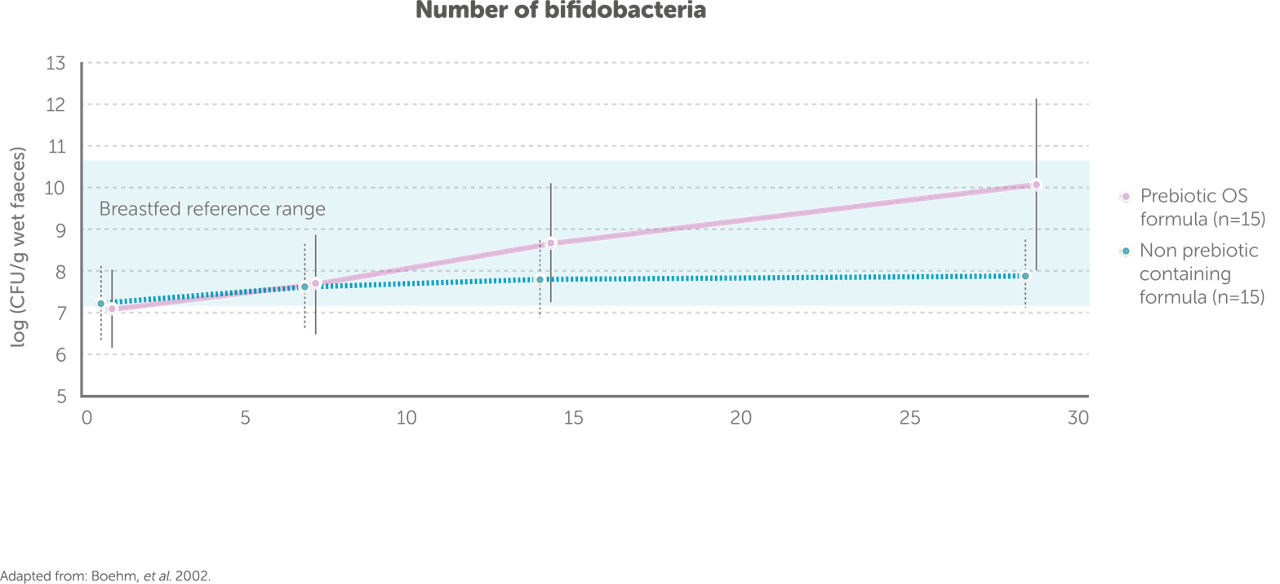
Conclusion
Supplementation of a preterm formula with a mixture of galacto- and fructo- oligosaccharides stimulates growth of bifidobacteria.
Effect of prebiotic oligosaccharides (OS) on pathogens2
Study Design
25 preterm infants (≤ 32 weeks) were randomised to receive either a preterm formula supplemented with prebiotic OS, or a non-prebiotic OS preterm formula, for 28 days. Faecal pathogens were recorded on days 1 and 28.
Results
At the end of the study period the numbers of pathogens were significantly lower in the prebiotic OS group compared to the group fed the non-prebiotic OS containing preterm formula.
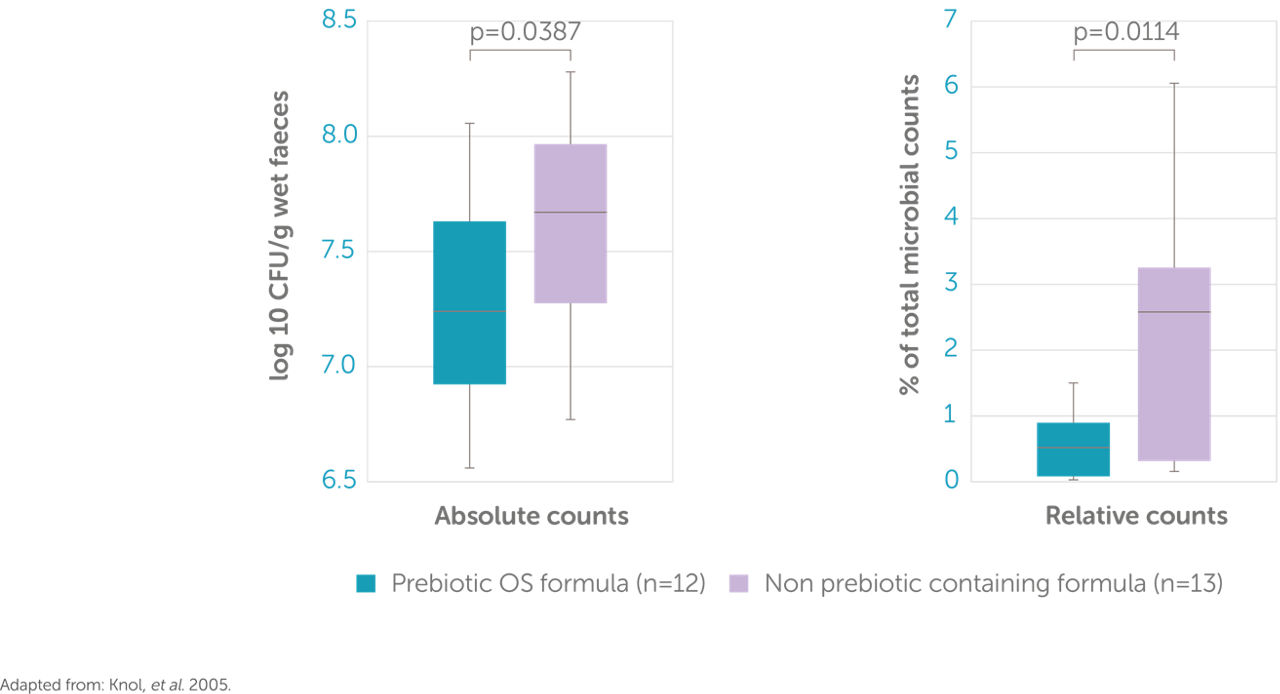
Conclusion
Stimulation of bifidobacteria by prebiotic OS reduces the presence of clinically relevant pathogens.
Effect of prebiotic oligosaccharides (OS) on stool characteristics1
Study Design
25 preterm infants (≤ 32 weeks) were randomised to receive either a preterm formula supplemented with prebiotic OS, or a non-prebiotic OS preterm formula, for 28 days. 12 breastfed infants were also studied.
Results
Significantly softer stools and increased stool frequency in preterm infants fed a prebiotic OS versus a non-prebiotic OS containing preterm formula.
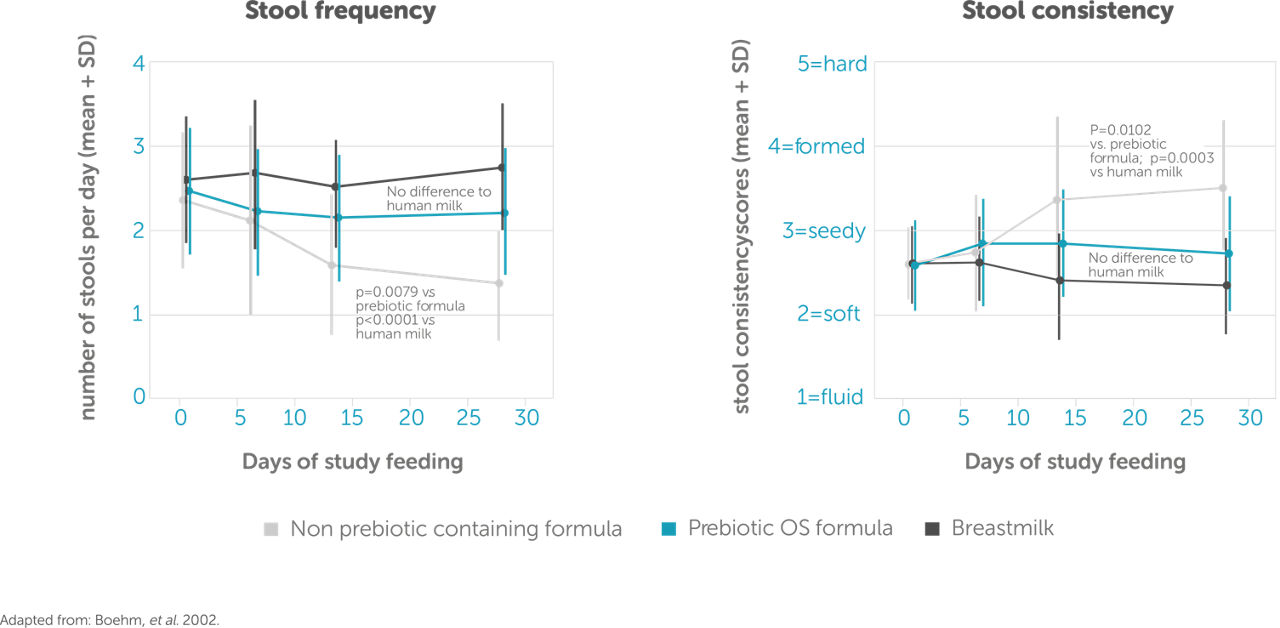
Conclusion
Stimulation of preterm formula with prebiotic OS results in stool frequency and consistency similar to those found in preterm infants fed breast milk.
Effect of prebiotic oligosaccharides (OS) on stool characteristics and gastrointestinal transit time3
Study Design
20 preterm infants on full enteral nutrition were randomly allocated to have their feed supplemented with either prebiotic OS or placebo for 14 days. The mean gestational age was 27 (range 24-31) weeks.
Results
Stool viscosity and gastro-intestinal transit time significantly reduced over the study period in preterm infants fed the prebiotic OS formula versus a non-prebiotic OS containing preterm formula.
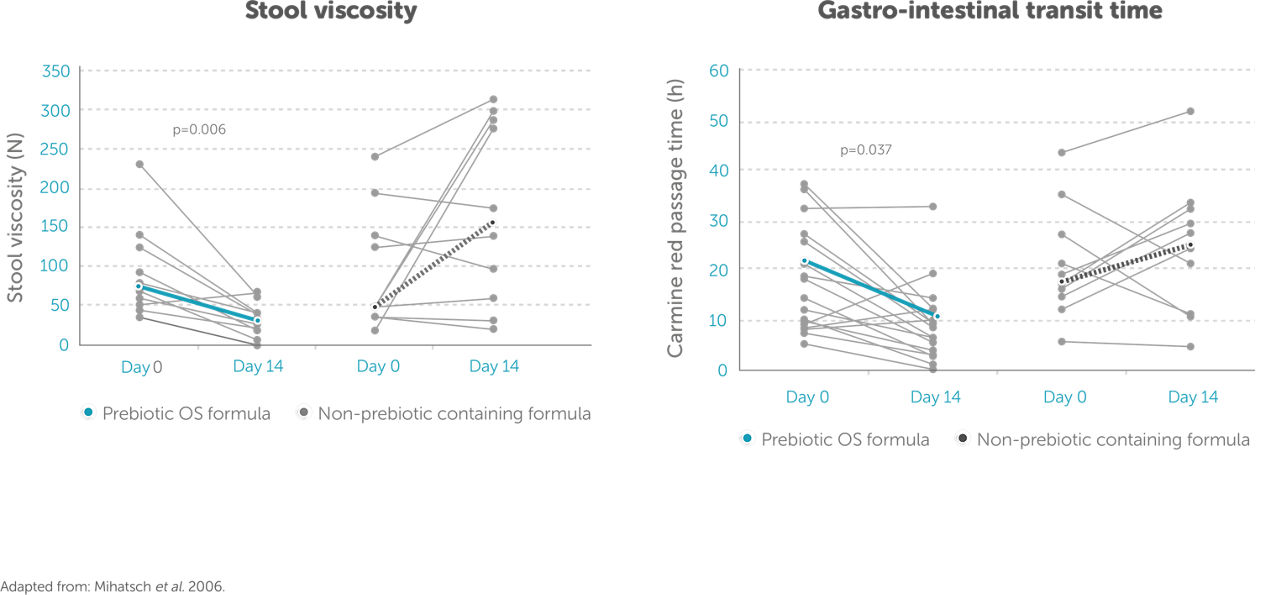
Conclusion
Prebiotics may help facilitate enteral feeding advancement and thus increase tolerance of enteral nutrition.
Effect of prebiotic oligosaccharides (OS) on enteral feeding tolerance4
Study Design
160 babies were recruited to compare a prebiotic OS preterm formula with a non-prebiotic OS containing preterm formula in infants born <33 weeks. Primary outcome was the number of days from birth to establish a total daily enteral (milk) intake of 150ml/kg/day. Principal secondary outcome was the proportion of days between birth and 28 days or discharge that a total milk intake of >150ml/kg/day was tolerated.
Results
- There were no significant differences in the primary or secondary outcomes
- After covariate adjustment there was improved enteral tolerance in infants <29 weeks
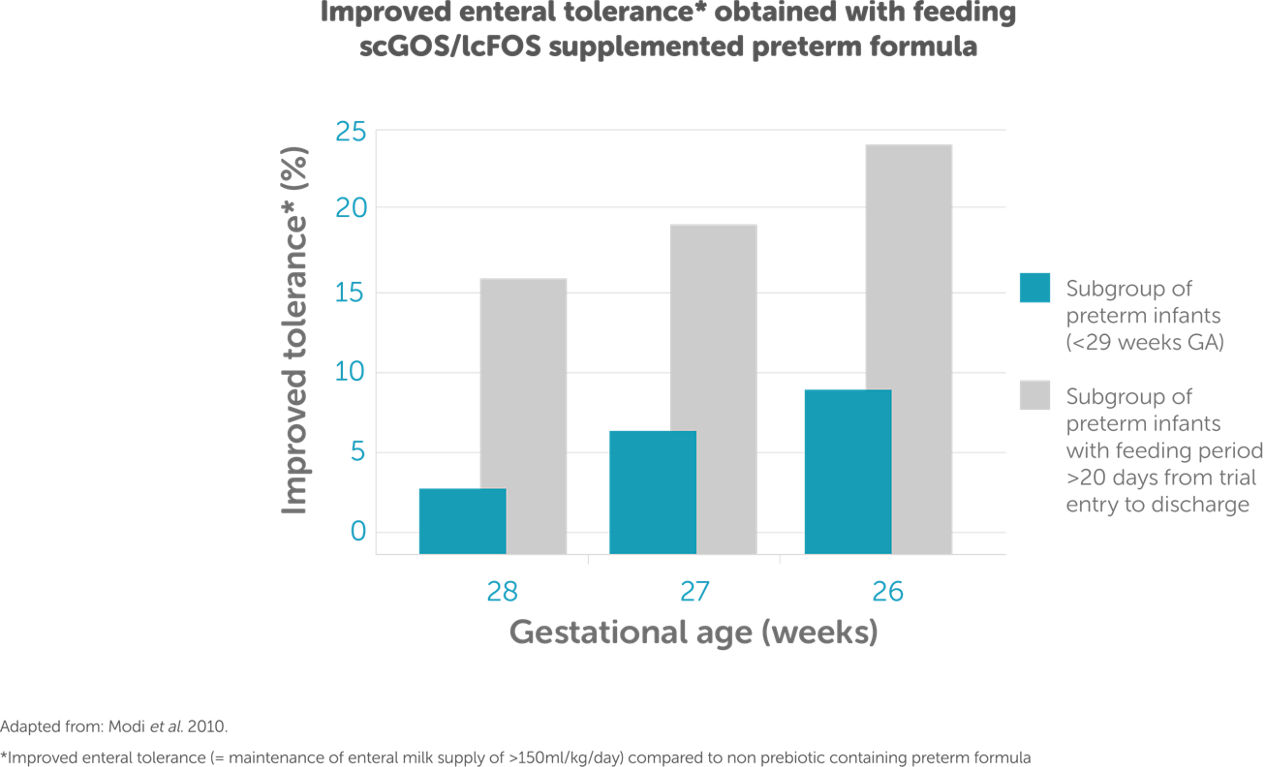
Additional Results
- There were no significant differences in the primary or secondary outcomes
- After covariate adjustment there was improved enteral tolerance
- 2.9% higher in prebiotic OS group for infants at 28 weeks, 9.9% higher in those born at 26 weeks (figure A)
- In subgroup of infants in prebiotics OS group in hospital >20 days (figure B)
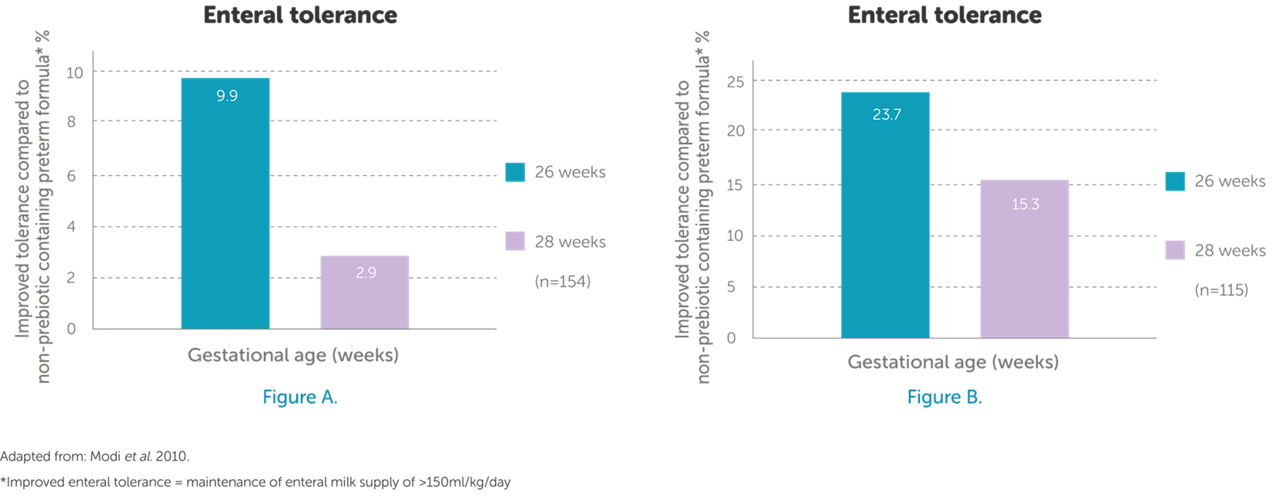
Conclusion
A formula with prebiotic OS may improve enteral tolerance in very preterm infants <29 weeks versus a non-prebiotic OS containing formula.
- Boehm G et al. Arch Dis Child Fetal Neonatal Ed. 2002;86:F178–F181.
- Knol J et al. Acta Paediatrica. 2005;94(Suppl 449):31–33.
- Mihatsch W et al. Acta Paediatr. 2006;95:843–848.
- Modi N et al. Pediatr Res. 2010;68:440–445.
Order a free paper copy of the Preterm Parent Book
To order a free paper copy of the Preterm Parent Book, please register for your free Nutricia account or login at the link below.
Looking to speak to your local Nutricia representative?
Select ‘request a meeting/ call with a local sales rep’ as the topic of enquiry when completing our contact form, and your local account manager will be in touch shortly.
